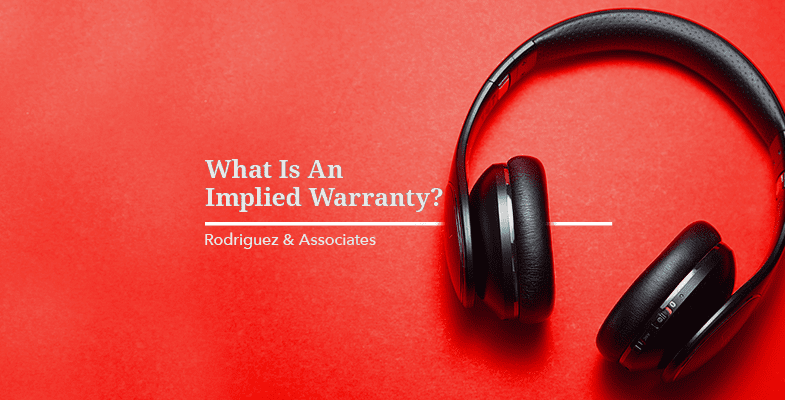When purchasing products, many people are wary of warranties that could ultimately impact how long a product can receive repairs or even the timeframe we can return the product in. However, warranties can apply in many more situations than getting a costly appliance fixed. Some warranties apply to the quality of the product or the validity of making product liability claims.
Implied and Express Warranties
Many of us are familiar with written and spoken warranties, which include statements of what is and is not part of a warranty. When it comes to products, warranties serve as a guarantee that a product will meet stated quality and reliability standards – often with a money back statement applied. When a product does not meet the expectations of the warranty, a consumer can easily pick out the discrepancies and take the matter up with the manufacturer.
In contrast, an implied warranty does not involve any form of written or verbal agreement – the guarantee of proper operation is an implication. However, this does not make such warranties any less valid or enforceable. If you purchased a toaster that does not produce enough heat to operate as a toaster, then it would be a breach of the implied warranty of the product.
Consumers have several legally enforceable warranty rights that work on the concept of providing fair value for money spent. These warranties fall into two major categories.
Implied Warranty of Merchantability
One of the types of implied warranties is that of merchantability – that the product will work if used for its intended purchase. If you purchase a product that does not work as it should for the intended purchase, like the toaster in our earlier example, you have a right to an exchange or refund. However, if the product doesn’t work because you are using it for an unintended purchase, the warranty of merchantability does not apply.
To be a merchantable item, a product must:
- Conform to stands of trade as applies to the contract for sale
- Be suitable for intended purposes, even if a consumer purchased it for another use
- Be uniform involving quantity and quality
- Packed and labeled appropriately
- Meet specifications on package labels
The implied warranty of merchantability is also applicable to used items, given the condition of the product at the time of sale.
Some states allow merchants to mark items as “with all faults” or “sold as is” to avoid implied warranty, often under the argument that the consumer had the opportunity to observe the item before purchase. California is one of these states.
Implied Warranty of Fitness
While all products have an implied warranty of merchantability, others also have a warranty of fitness. Products with an implied warranty of fitness are not only suitable for the merchantable standards, but for an additional, specific purchase. Coming back to the toaster example, if you asked a salesperson for a toaster that could toast four slices of bread at once but it only has the capacity to handle two, then you could return the product for breaching the warranty of fitness.
In most cases, the warranty of fitness comes from a salesperson’s recommendation of an item for a specific purchase. These warranties can apply even if a product meets the standards of merchantability.
Implied warranties work to protect a customer’s rights to functional products that work as intended. They not only serve as grounds for returns and exchanges but can also help to support a product liability case. If you have suffered damages due to an improperly functioning product that violates the implied warranty of merchantability, then you may have grounds to seek compensation. Discussing your potential claim with a Bakersfield product liability attorney is the first step to understanding your warranty rights.
